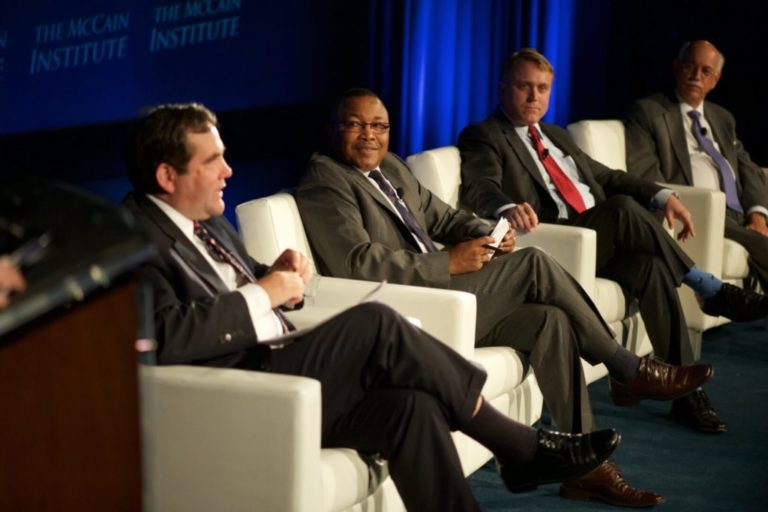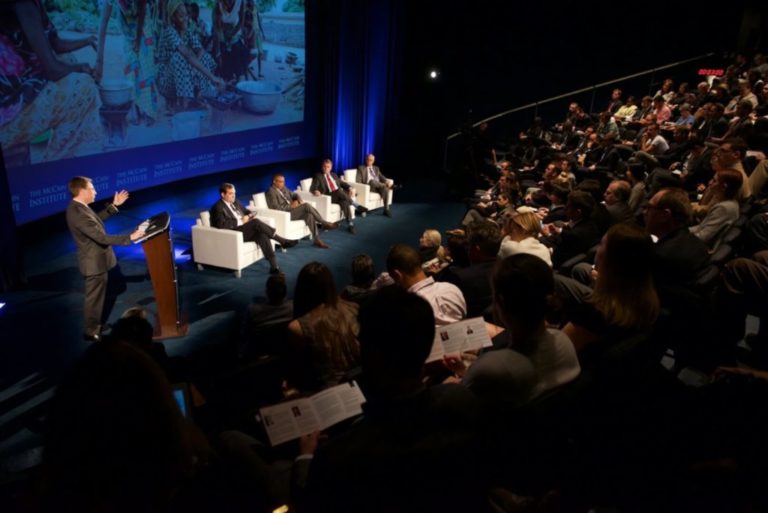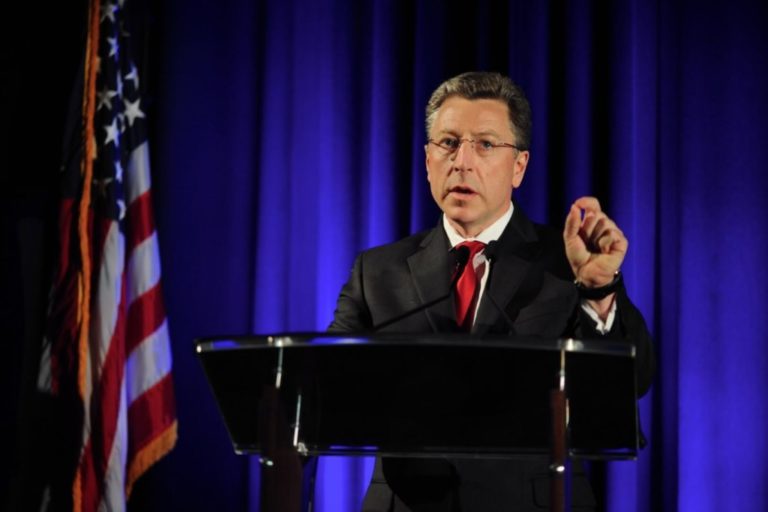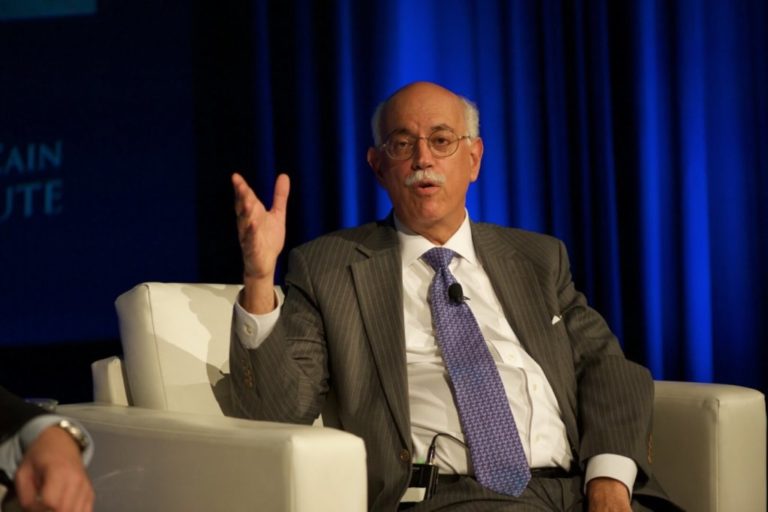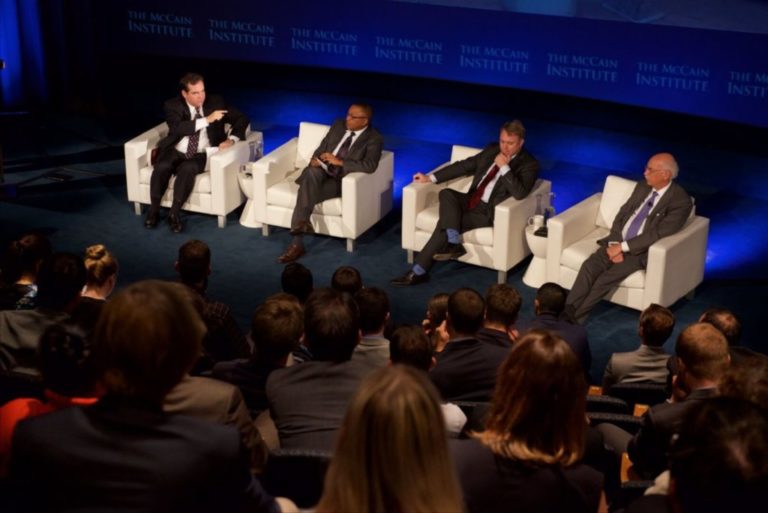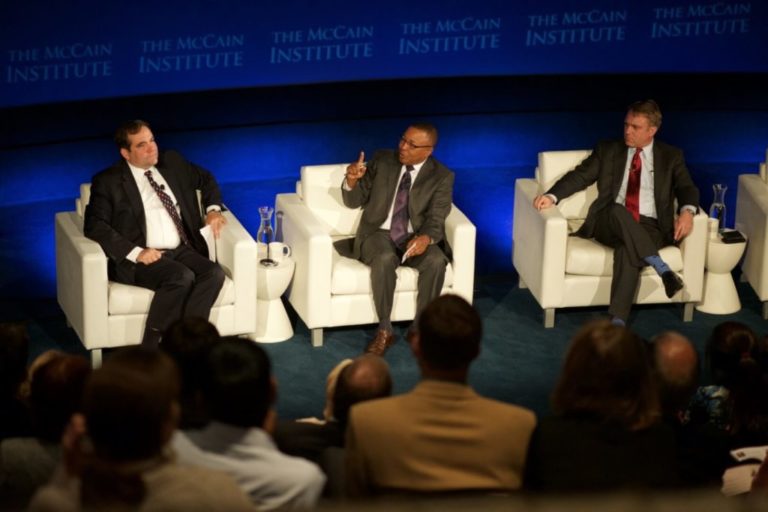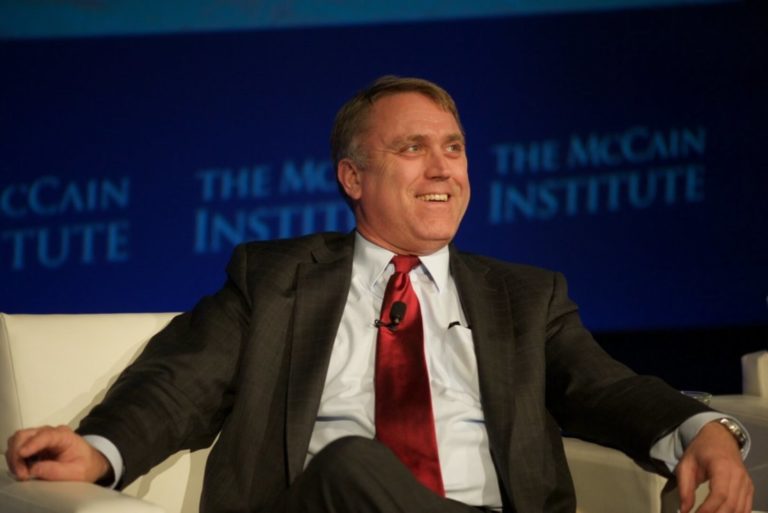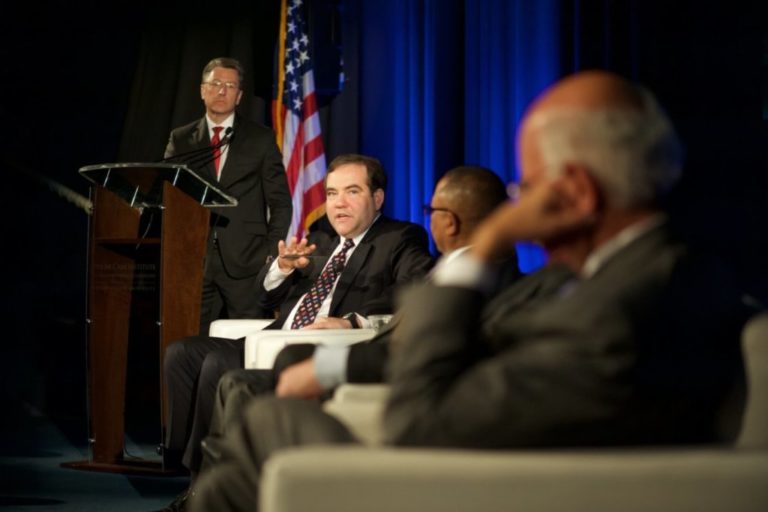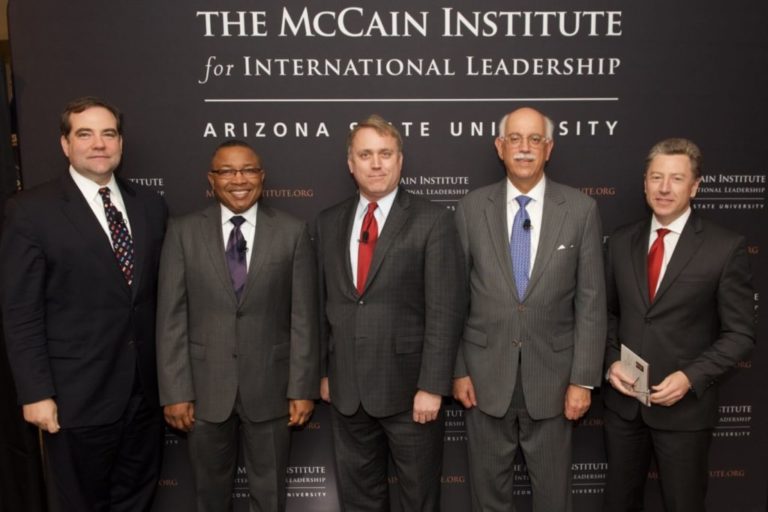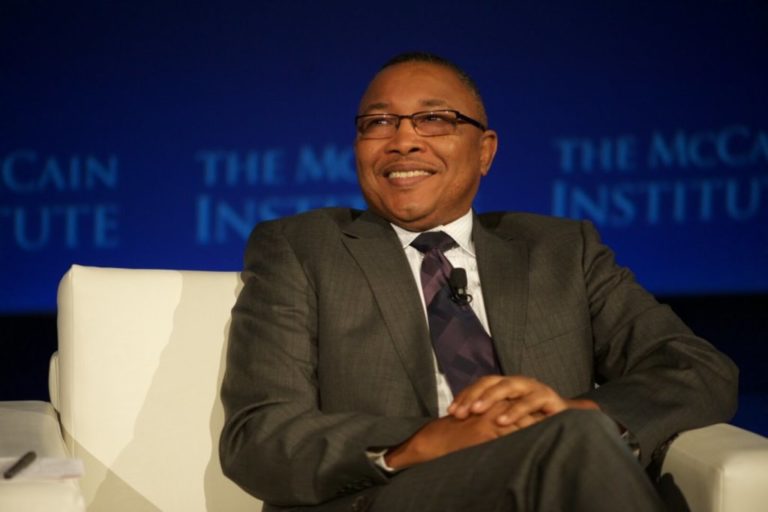Video: Event Recap
Event Summary
The Debate
On Thursday, October 22, 2015, the McCain Institute for International Leadership at Arizona State University hosted the debate, “Should U.S. Foreign Assistance Be Tied to Human Rights?”
Many countries that receive U.S. humanitarian, development, or security assistance are also places where human rights are violated. The key question under debate was how the United States should handle this: does U.S. assistance empower the abusers, or provide needed relief to the victims? What is the right U.S. policy?
The Debaters
Arguing that foreign assistance should be tied to human rights:
- Dan Runde, William A. Schreyer Chair and Director, CSIS.
- Omer Ismail, Senior Advisor, Enough Project.
Arguing that foreign assistance should not be tied to human rights.
- Douglas Ollivant, ASU Future of War Senior Fellow, New America.
- Andrew Natsios, Director of the Scowcroft Institute of International Affairs, Texas A&M University, and former USAID Administrator.
Moderating the debate:
- Kurt Volker, Executive Director of the McCain Institute.
The Key Arguments
Arguments that foreign assistance should be tied to human rights:
-
- There is evidence of foreign assistance being used to prop up dictatorships. Examples include Mobutu Sese Seko in Zaire and Marcos in the Philippines. In some cases foreign assistance programs strengthen regimes for several decades; aid never reaches its designated destination and is diverted to sustain abusive activities.
- Development and military assistance should always be conditional. The United States should be interested in promoting a rule-based order, not in abetting the rise of abusive states. The United States should be motivated by ‘pragmatism grounded in idealism.’
- It is very complicated to work around governments. By-passing abusive governments and providing assistance directly to civil society organizations may work in some limited cases. However, the moment elites feel threatened by change, they will react.
Arguments that foreign assistance should not be tied to human rights:
-
- People should not be disadvantaged by their leaders’ actions. Certain forms of aid – humanitarian assistance, health programs, and democracy-building programs – should never be conditioned. Why would the United States shut down programs that seek to save lives and protect human rights?
- Aid is a powerful tool of U.S. power that has in the past helped transform dictatorships into democracies. This can be seen in the cases of Taiwan, Indonesia, Ghana and Chile. All had large aid programs that were not shut down. The assistance did a lot to transform those countries into middle-class democracies with private markets that now respect human rights.
- Shutting down and restarting aid programs can actually waste taxpayer money. Foreign assistance is a long-term commitment that can take sustained effort to have a lasting impact. Turning them on and off can mean having to restart from scratch, not just picking up where one left off.
Policy Recommendations
Dan Runde affirmed that the United States needs to lead with its principles. It is important not to compromise those principles and to use all instruments of statecraft to push in the direction of greater human rights.
Omer Ismail argued that aid should be tied to American values: freedom, democracy, and human rights, which are shared by all American people.
Douglas Ollivant said the United States has a wide range of interests, not just human rights. Americans need to pay attention to human rights but strike the right balance.
Andrew Natsios argued that humanitarian, health, and democracy assistance should never be withheld in order to push for human rights – it could actually threaten human life. The United States should not punish people for their governments’ abuses.
SPEAKERS
Dan Runde
William A. Schreyer Chair
Director, CSIS
Omer Ismail
Senior Advisor, Enough Project
Douglas Ollivant
ASU Future of War Senior Fellow, New America
Andrew Natsios
Director of the Scowcroft Institute of International Affairs, Texas A&M University Former USAID Administrator
Kurt Volker
Executive Director of the McCain Institute.
Video: Full Event
